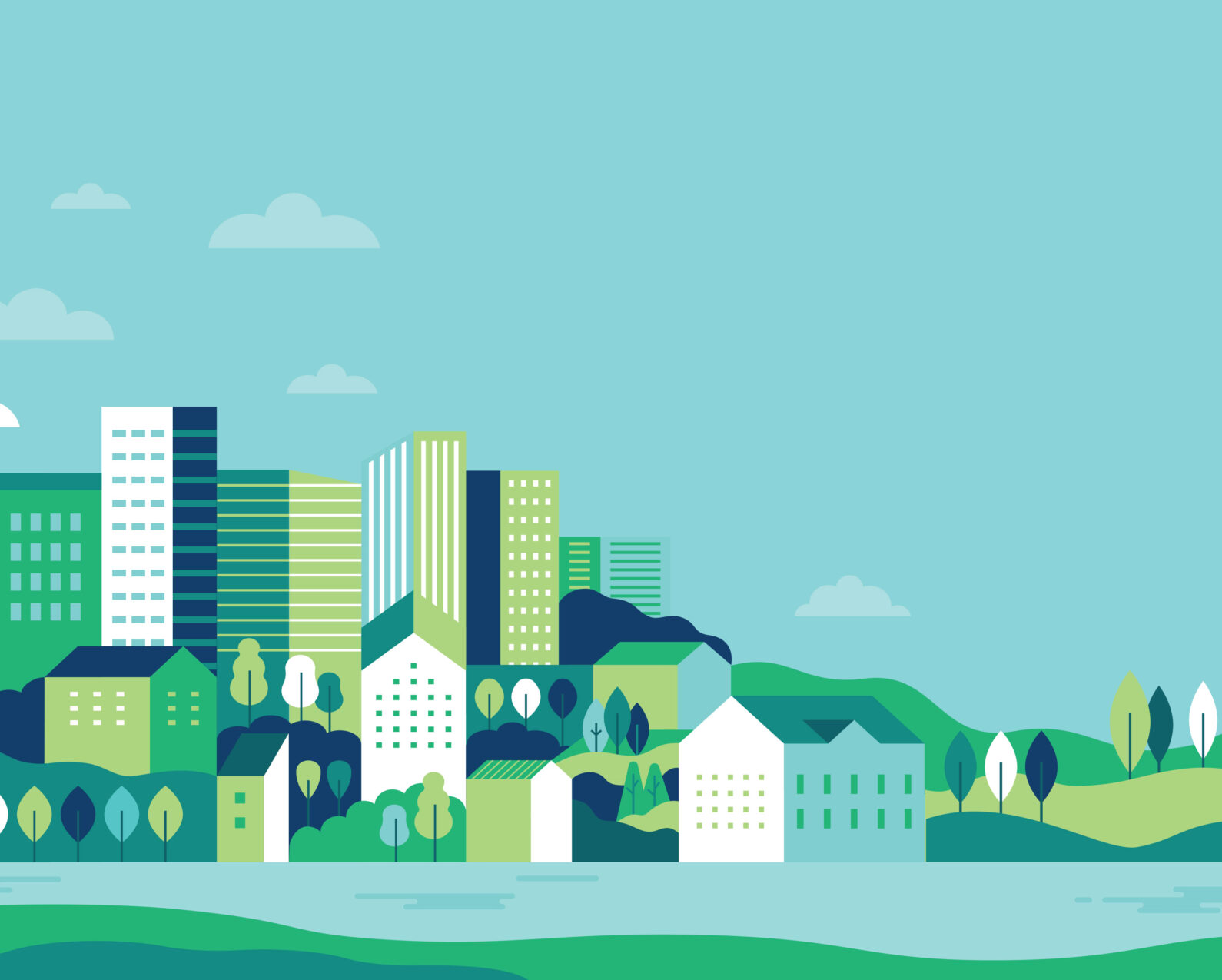
The natural environment is on most people’s minds these days, as the health of our planet has become a crucial consideration for every industry. In the building industry, we face a number of challenges. Increasingly, however, we are finding solutions.
Many people may not be aware that Canada is a world leader in building environmentally. Industry-wide, we’re finding new and better ways to build more responsibly, embracing new standards and technologies as they continue to advance.
As a company, Townline is committed to addressing environmental concerns in each of our projects. We look at a variety of methods to help reduce our carbon footprint and alleviate the impact of this industry on the planet. From LEED Certification to creative ways to recycle, we’re making efforts that have a positive impact on every project from inception to completion, and well beyond.
We all need homes to live in, and these homes need to be built. But ultimately, our planet is our home. Our work must always respect that.
Leading the way with LEED
LEED Certification is an industry-leading certification program that sets global standards for environmental responsibility in building design and construction.
LEED stands for Leadership in Energy and Environmental Design. The program uses a set of rating systems for the design, construction and operations of buildings to help create greener, cleaner environments from the ground up.
Canada has the second-highest number of LEED projects in the world, with over 4,350 LEED-certified and 8,500 LEED-registered buildings. That’s something the industry as a whole can be proud of.
Real results of going green
Since 2005, LEED Certification in Canada has helped change the way we build – and had a dramatic,
positive impact on our environment. The numbers, according to the Canada Green Building Counsel, are impressive.
- 16.7 MILLION eMWh of Energy Saved
Enough to power 570,000 homes in Canada for a year - 30 BILLION LITRES of Water Saved
Enough to sustain over half a million people for a year - 3.6 MILLION TONNES of Construction Materials Recycled
Equal to a year of total waste disposal in BC - 3.24 MILLION TONNES of CO2 Emissions Reduced
Equivalent to taking 690,000 cars off the road for a year - 355,000 SQUARE METRES of Green Roofs Added
That’s more than 1,800 tennis courts
Certifiably green: The Parker by Townline
Located at West 41st and Elizabeth Street in Vancouver, The Parker by Townline is being built to LEED Gold certification standards.
- Recycled construction materials: On-site bins for recycling wood, plastics, concrete and more
- Thermal efficiency: Roofs, walls and windows designed to reduce energy requirements
- Locally sourced materials: Where possible, materials are locally sourced to reduce CO2 emissions from transportation
- Green roof: Absorbs rainwater, regulates building temperature, saves energy, absorbs C02 and produces oxygen
Green roof temperatures are up to 4° lower than conventional roofs.
- District energy compatible: When ready and available, can connect into a district energy system that uses low-carbon and renewable energy sources
- Energy efficiency: EnergyStar-rated appliances reduce energy demands
- Water efficiency: Low-flow plumbing fixtures reduce hot water and overall water consumption
- Walkability: Proximity to transit corridors and a walkable community reduce the need for cars
The average gasoline car emits about 6 tons of carbon dioxide every year.
- Electric vehicles are 85-90% more efficient.
- Bike storage: Encourages healthy, carbon-free methods of transportation
- Passive strategies: Strategic balcony overhangs provide solar shading
- Electric vehicle stalls: A portion of parking stalls are EV-ready
All future Townline communities will include innovative EV charging solutions.
Ocean concrete for a cleaner footprint
The production and transportation of concrete is a significant contributor to global carbon dioxide. Townline partners with like-minded companies to find solutions that help reduce the environmental impact of concrete.
The majority of our concrete comes from Ocean Concrete, a subsidiary of Lehigh Hanson, which has long been committed to environmentally responsible manufacturing processes.
Innovative technology by Lehigh Hanson enables the production of Portland-Limestone Cement (PLC). PLC increases the use of limestone to reduce the energy required for production, as well as associated emissions.
PLC has the same level of strength and durability as regular cement, but lowers CO2 emissions by approximately 38 kg per metre of concrete.
Townline has partnered with Ocean Concrete for decades. It’s a locally sourced product, manufactured in Delta. That helps us reduce our carbon footprint. Through the use of PLC in our projects, we’ve saved over 1.3 million kg of CO2.
That’s the equivalent of taking 290 cars off the road.
DID YOU KNOW?
Concrete reabsorbs a significant amount of CO2 over its lifetime in a process known as carbon uptake, or recarbonation.
Small steps to a smaller footprint
From the bigger picture to the smaller details, Townline is continually working toward new and better ways to help mitigate our impact on the environment.
100% plastic bottle free
Townline is committed to becoming 100% plastic bottle free on our construction sites and in our buildings. By installing water filling stations and offering refillable stainless-steel bottles, we will rid our sites of an estimated 3,000 bottles per year.
Pull up a milk jug!
Townline is exploring different ways to recycle more materials, and to incorporate recycled materials into our projects. We’re currently seeking alliances with strategic partners to repurpose all waste plastics from our sites.
Our goal is to find ways to repurpose construction materials to build children’s play structures, and create outdoor furniture from recycled milk jugs!
DID YOU KNOW?
Plastics can be repurposed as polyester and made into clothing. It takes about five plastic bottles to make one shirt!
Past Volumes
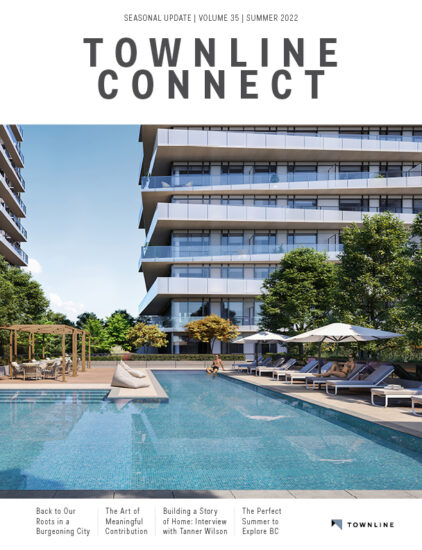
Volume 35
Summer 2022
Click below to read
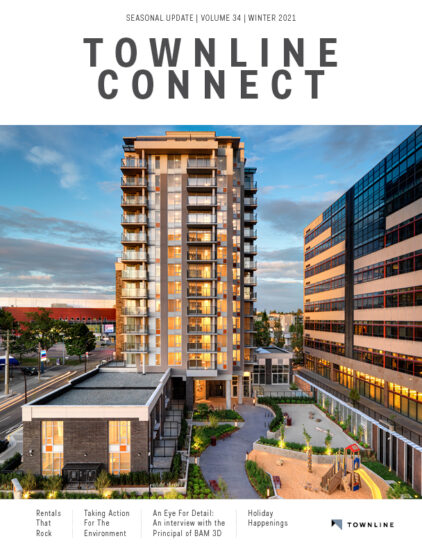
Volume 34
Winter 2021
Click below to read
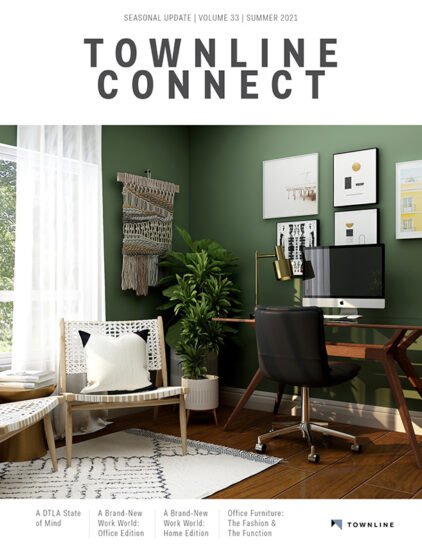
Volume 33
Summer 2021
Click below to read
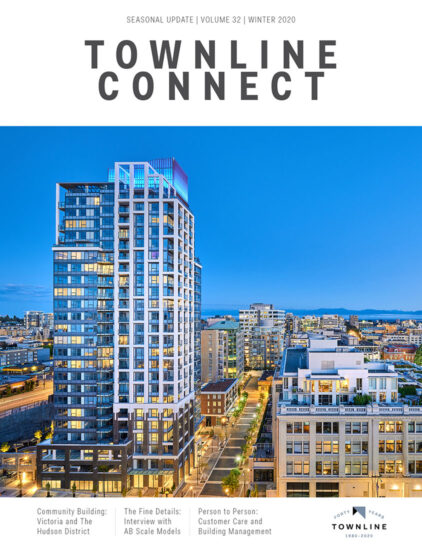
Volume 32
Winter 2020
Click below to read